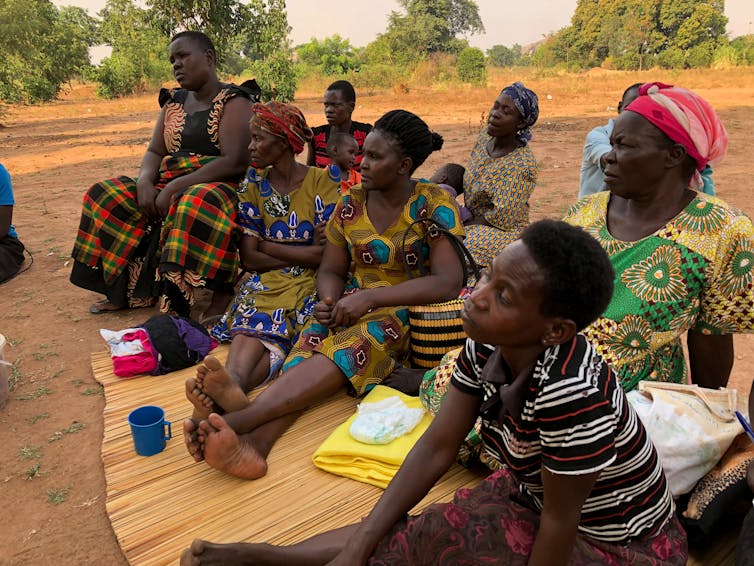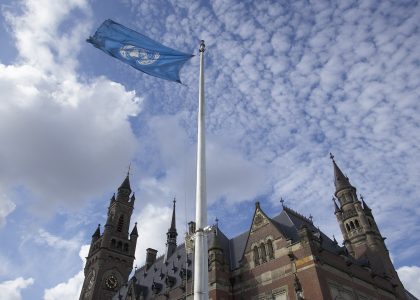What does it mean to be ‘educated’? In Uganda it’s not just schooling that counts
Ben Jones, University of East Anglia and Lucy Njogu, University of East Anglia
How do you gauge whether someone is educated or not? In many parts of the world, the answer relates to the level of formal qualifications they achieve when they are young – do they have a university degree? In what subject and from what institution?
This appeals to the sense that education is something earned and to the belief that schools and universities have the authority to say who is (and who is not) educated. It’s also how economists and social scientists define someone’s education level and link that to what their health and social outcomes might be later in life.
However, as journalist Vanessa Friedman has written in the New York Times, educational status can change because of the clothes you wear. She uses two examples – a jacket worn by the fictional protagonist of the 1999 film The Talented Mr Ripley and the outfits worn by disgraced US politician George Santos, a look she calls the “uniform of preppy private-school boys everywhere”. He worked hard, she argues, to appear more credentialed than he was.
These characters, one fictional and one real, are con artists. But they make an important point about the way being educated is not a settled status. It is something that can be worked on in various ways, including through the clothes one wears.
We are researchers involved in a project exploring young people’s futures in rural Uganda. As part of this, Ben – an anthropologist – conducted a study to understand what young men and women do with their education in the absence of white collar jobs.
We found many women and men, of different ages, continuing to work on their claims to an educated identity throughout their lives. They do this by wearing the right clothes, but also by joining committees, being active in church, speaking what is considered the right sort of English, and presenting their arguments in the “logical” way that those with a good education have been trained in.
These people are not Tom Ripleys or George Santoses. They are doing what they do because being seen as educated has benefits. In this part of Uganda, educated people tend to prevail in disputes and fare better with various authorities; they are also more likely to benefit from government and NGO schemes.
This shows that people can work on their educational status throughout life, and that much of the work of being educated is only indirectly tied to the schooling experience. Policymakers miss this point. They assume that formal qualifications are the best measure of educational status. But “being educated” is not only about the credentials you have: it is also about how others credential you.
Ivan and Florence
Oledai is a rural sub-parish of about 180 households near the trading centre of Ngora, in eastern Uganda. Though English is the language of instruction from the late stages of primary school, Ateso is the most spoken language. Residents engage in a mix of farm work and petty trading; some run businesses to make a living. A small number have salaried employment, typically as school teachers.
There is a difference in how young and older people work on their educational status that reflects the fact that very few older people had the opportunity to go to secondary school.
If you ask a resident in the village to take you to the home of an educated person, you might we be directed to Ivan Onai’s grass thatched house. Ivan is in his late 20s; a born-again Christian who is fluent in English. He listens to the BBC World Service to cultivate his vocabulary.
Always well turned out, Ivan serves as a youth counsellor at the sub-county and runs a youth group in the village. Though Ivan dropped out of school after his A-levels, he has cultivated the identity of a university graduate through his manners, political career and committee work. Many feel he is more educated than some of his better-credentialed peers.
Florence Akol, meanwhile, is in her early 40s and went to school at a time when educating daughters was less of a priority in Uganda than it is today. She completed only two years of primary education, but went on to raise two daughters who both attended university. Through them she has learned English. She is also treasurer of the village council and treasurer of her clan.
These stories illustrate how schools and universities throughout Uganda are important not only as places where certificates are handed out but also as referents against which ideas of “being educated” circulate more widely in society.
The experience of schooling matters as much as the practices it teaches – committee skills, competence in English, the carrying of books and pens. Committee work requires an understanding of procedure, an ability to do bookwork and, often, a degree of confidence in spoken English.
The benefit of perceptions
The wider community often discussed what made someone educated. One older woman, part of a group trying to raise money for school fees, told us that education “trims your manners and helps you think differently” and that “being educated” helped in managing disputes and getting a favourable outcome in the village court.

This could be observed as the community mobilised around the “parish fund”, a new government initiative meant to help its citizens, or the president’s Emyooga scheme targeting youth. Those appointed to positions of influence were more educated than the average, and those in committee positions had the capacity to monopolise how the funds would be allocated.
Policy implications
We believe that understanding these dynamics is key for policymakers and researchers, who (in Uganda and many other parts of the continent) define educational status through the formal qualifications a person has. They focus on the health or social benefits that come from “human capital”.
We would encourage policymakers to rethink how education is understood so that it comes to be defined as an accredited status – how people evaluate you – as well as a credentialed one – the papers you carry in your pocket.
Investing in areas that shape accreditation would be a way of helping more people access opportunities. In Oledai this might mean offering evening classes to help adults improve their skills in spoken English, or giving people access to training in the sort of bookwork that committees value.
Ben Jones, Senior Lecturer, University of East Anglia and Lucy Njogu, PhD student, University of East Anglia
This article is republished from The Conversation under a Creative Commons license. Read the original article.
Photo credit: Nina





